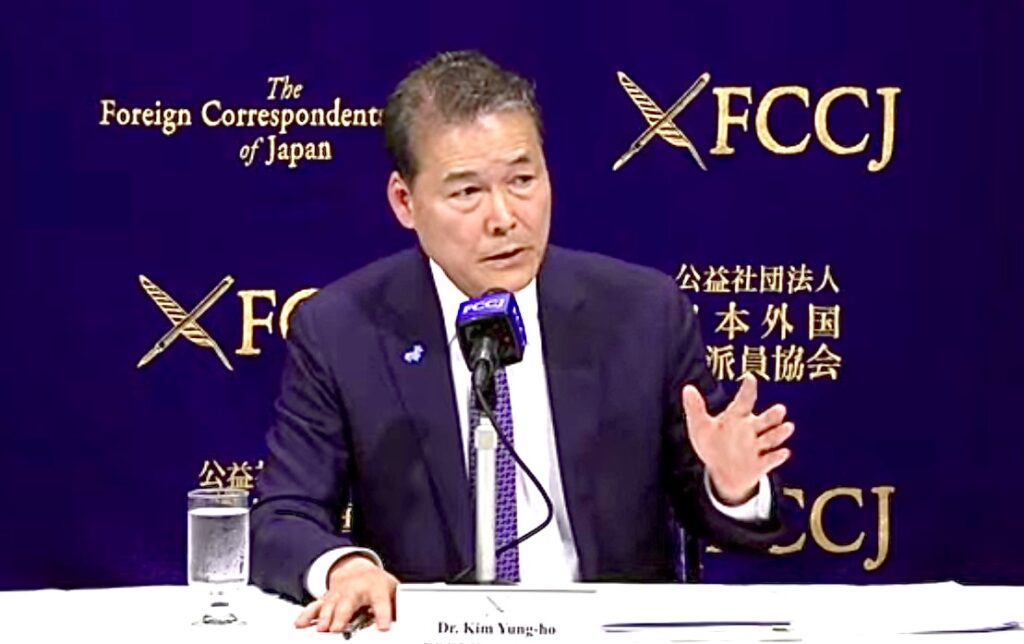
- ARAB NEWS
- 17 Aug 2025

TOKYO: South Korea’s Unification Minister Kim Yung-ho says unification with North Korea requires the denuclearization of the North, cooperation with the United States, South Korea, Japan and the international community, deterrence through the US-ROK alliance and the joining of international forces to put pressure on the North.
Speaking at the Foreign Correspondents’ Club of Japan, Kim said, “We need to move beyond abstract ideas toward detailed and practical policies based on evidence and data.”
He added that South Korea’s “August 15 Unification Doctrine” issued last August “sets a vision for a unified Korea based on freedom, peace and prosperity.”
Kim said the North is continuing to expand its nuclear capabilities and its militarization is linked to human rights abuses.
“The regime uses forced labor and exploitation to support its military goals,” he said. “North Korean nuclear and human rights issues are two sides of the same coin. The deployment of troops to Ukraine shows how the regime threatens global peace while prioritizing its survival over its people’s well-being, sacrificing young people in foreign conflicts.”
Kim’s task in trying to unify the two Koreas hasn’t been helped by North Korea officially declaring inter-Korean relations as “hostile relations between two separate states” and taking action to repudiate any overtures from South Korea, even blowing up roads that lead to the South.
“They have rejected all dialogue offers and humanitarian aid from our government,” Kim stated. “Behind these hostile actions is the North Korean regime’s need to prevent its people from longing for South Korea and to maintain power through tight control.”
However, Kim said that “soft power” was finding a way to influence many ordinary North Koreans and pointed out that defectors have said they watched South Korean drama and were able to access South Korean culture.
But Kim and South Korea’s recently deposed President Yoon Suk Yeol have been accused of provoking the North into a negative reaction. Kim was accused of calling for “regime change” in North Korea, but on Thursday he said, “Regime change is not the policy of the government of South Korea.”
He also refuted the notion that the two Koreas could live as two states in a federation or that there were similarities with the reunification of Germany following the collapse of the Soviet Union. The key, he said, was to unify the political system, which happened in Germany when East Germany came under the political control of West Germany.
Kim’s job as Unification Minister may not last long as South Korea will have an election on June 3 when opposition leader Lee Jae Myung is expected to become the new president.